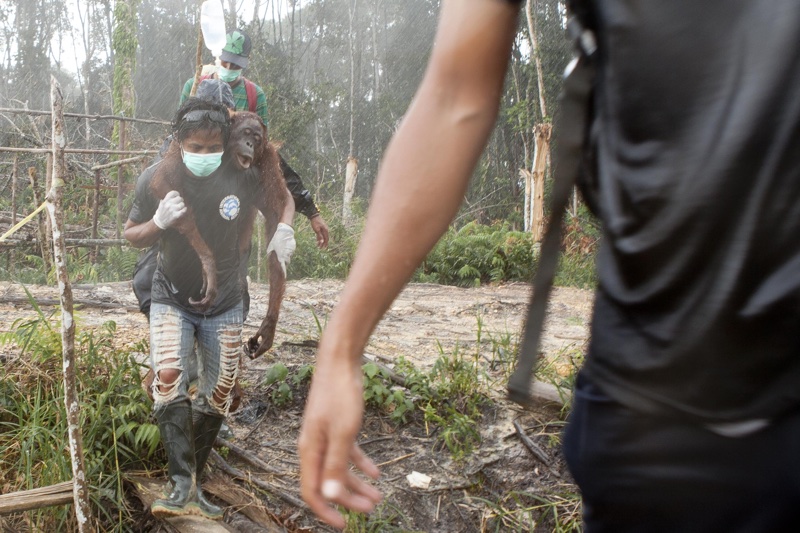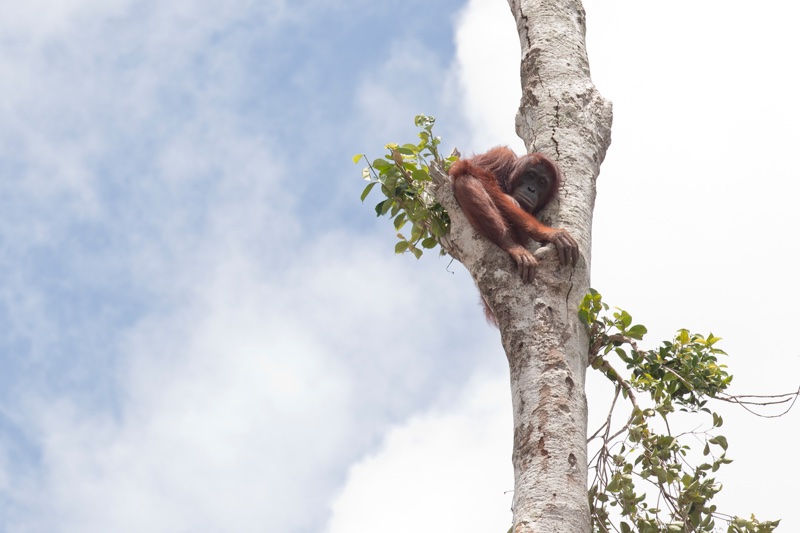Greenpeace International has called on businesses to end the use of ‘dirty’ palm oil with a new campaign video narrated by British actress Emma Thompson.
The animated Rang-tan video shows the effects of deforestation on orangutans’ habitats in an effort to encourage consumers to sign the not-for-profit’s petition to end the use of palm oil in products.
The campaign has also been backed by a host of other famous faces, including Stephen Fry, Jodie Kidd, Gregg Wallace and Sharon Osbourne.
Thompson said: “For too long big brands have been getting away with murder. And for too long our response to orangutans has been ‘poor thing’ as we’re shown photographs of them orphaned and at death’s door.
“But change is possible – we can make it so.”
Greenpeace has directly called on personal care giant Unilever – despite it recommitting to making sustainable palm oil mainstream earlier this year – as well as other brands including Mondelez and Nestlé.

Orangutan being rescued from felled forest in Indonesia
“By making a noise, demanding answers and forcing change, we can stop feeling sorry. Instead, we can feel exhilarated as we witness these iconic beasts living truly wild once more,” added Thompson.
“If we accomplish that, believe me, we will all be much better off.”
Launched ahead of International Orangutan Day on 19 August, the brand hopes to reach 25,000 signatures with its petition, which currently has 19,127.
John Sauven, Executive Director of Greenpeace UK, said: “A decade ago we persuaded brands including Nestlé, Unilever and Mondelez to sign global commitments to drop dirty palm oil from their products by 2020 - but with just 500 days to go – their progress is pitiful.
“Orangutans have been pushed to the very brink of extinction, indigenous peoples’ lives are threatened and climate change is accelerating.
“These forests are the lungs of the planet – it’s no exaggeration to say that keeping them intact is vital for all life on Earth and we hope Rang-tan will help bring this urgent message to millions more people.”
What impact is palm oil having?

Palm oil is made from the fruit of palm trees and is used in everyday essentials, including beauty products such as shampoos and household cleaning products and food.
But in order to source it for consumers’ make-up bags, large areas of tropical forests and other ecosystems have to be cleared to make way for plantations, meaning habitats – including those of orangutans – are being destroyed.
Today, according to Greenpeace, Indonesia’s forests are disappearing at the rate of one football pitch every 25 seconds and Bornean orangutan numbers have more than halved between 1999 and 2015, equal to more than 25 a day.
Other impacts include soil erosion, air pollution, soil and water pollution, and climate change.



